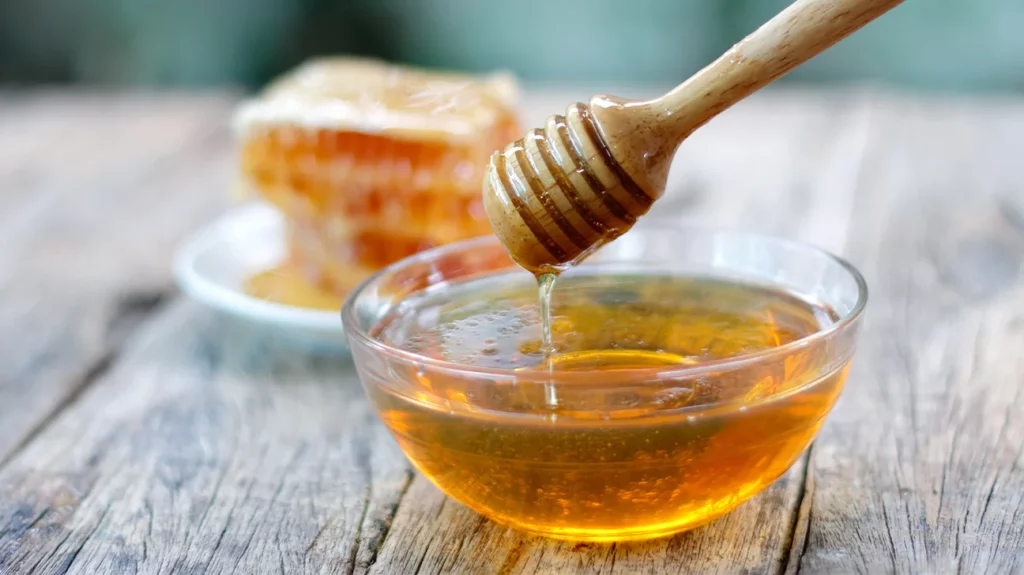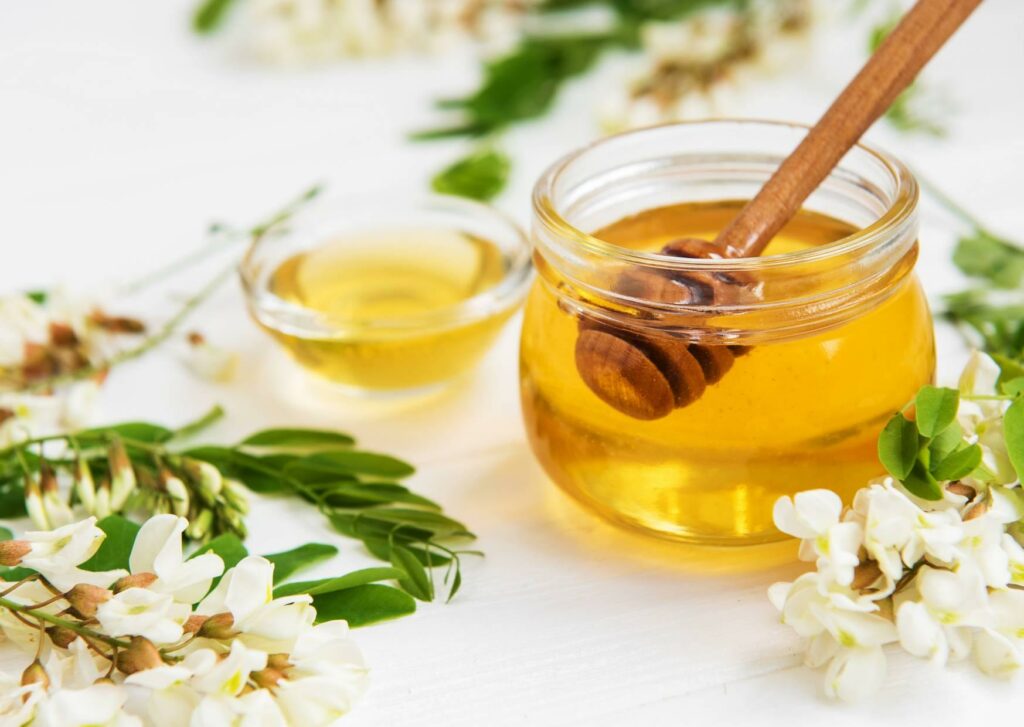Harnessing the Benefits of Honey: Natural Healing Properties
Honey, often referred to as nature’s gold, has been used for centuries as a natural remedy for various ailments. Its unique composition and healing properties make it a versatile ingredient, not only for culinary purposes but also for promoting good health. In this article, we will delve into the fascinating world of honey and explore the numerous benefits it offers. From soothing a sore throat to healing wounds, harnessing the benefits of honey can truly transform our well-being.
The Science Behind Honey’s Healing Properties
To truly understand the healing properties of honey, it is essential to delve into its scientific composition. Honey is predominantly composed of sugars, primarily glucose, and fructose, which give it its sweet taste. However, honey also contains an array of minerals, vitamins, antioxidants, and enzymes that contribute to its remarkable healing abilities.
The Antibacterial Power of Honey
One of the most notable benefits of honey lies in its ability to fight bacteria. The high sugar content in honey, combined with low water content and acidity, creates an inhospitable environment for bacteria, making it difficult for them to thrive. Excitingly, certain types of honey, such as Manuka honey, contain additional antibacterial components, such as hydrogen peroxide and methylglyoxal, which enhance this antibacterial effect.

Soothing Sore Throats and Coughs
When it comes to relieving throat irritation and coughs, honey has long been a popular natural remedy. Its thick consistency helps coat the throat, providing relief from irritation and soothing coughs. Moreover, honey’s antibacterial properties can help fight against the underlying causes of a sore throat, accelerating the healing process.
Harnessing the Benefits of Honey in Wound Healing
Beyond its role in soothing sore throats, honey also has exceptional healing properties when it comes to wounds. Dating back thousands of years, honey has been used to treat burns, ulcers, and infected wounds. This is due to a variety of factors:
Antimicrobial Action
Due to its low water content and acidic pH, honey creates an unfavorable environment for bacteria to grow. In addition, honey produces hydrogen peroxide when it comes into contact with bodily fluids, further enhancing its antimicrobial action. This makes honey an effective natural alternative for wound disinfection and protection against infection.
Wound Debridement
Honey has a remarkable ability to debride wounds, helping to remove dead tissue and promote the growth of healthy tissue. Its osmotic effect draws moisture from the wound, while its enzymes break down necrotic tissue. This promotes wound healing and reduces the risk of complications.
Alleviating Digestive Issues
Digestive issues such as indigestion, bloating, and acid reflux can be uncomfortable and disruptive to daily life. Fortunately, honey has been used for centuries as a natural remedy to soothe and alleviate these digestive problems.
Honey acts as a natural antacid, helping to neutralize excessive stomach acid and provide relief from symptoms such as heartburn. Its high viscosity creates a protective coating in the stomach, reducing irritation and promoting healing.
In addition to its antacid properties, honey also has antibacterial properties that can combat harmful bacteria in the digestive system. This can help alleviate symptoms of bacterial infections such as food poisoning and stomach ulcers.
To reap the benefits of honey for digestive issues, it is recommended to consume a spoonful of raw, unprocessed honey or mix it with warm water or herbal tea. The soothing properties of honey can provide quick relief and promote a healthy digestive system.
It is important to note that while honey is generally safe for most individuals, those with diabetes should moderate their intake due to its natural sugar content. Furthermore, honey should not be given to infants under one year of age due to the risk of botulism.
Incorporating honey into your diet as a natural remedy for digestive issues can provide a sweet and effective solution. Whether enjoyed on its own or added to warm beverages, honey can help soothe discomfort and promote a healthy digestive system.

Managing Allergies
Allergies can be a recurring nuisance, causing symptoms such as sneezing, itching, congestion, and watery eyes. While there is no cure for allergies, honey has been suggested as a potential natural remedy to help manage allergy symptoms.
The theory behind using honey for allergy relief is based on the idea of immunotherapy. When bees collect nectar from flowers, small amounts of pollen can be transferred to the honey. Consuming local honey, which contains traces of local pollen, may help desensitize the body to these allergens over time.
It is important to note that this theory lacks conclusive scientific evidence, and results may vary from person to person. However, many individuals have reported experiencing relief from seasonal allergies after incorporating local honey into their diet.
To try honey for allergy management, it is recommended to consume raw, unfiltered honey sourced from local beekeepers. Start with small amounts, gradually increase the dosage, and monitor any changes in symptoms. It is best to consult with an allergist or healthcare professional for personalized advice.
Promoting Better Sleep
Quality sleep is essential for overall health and well-being. However, many individuals struggle with sleep-related issues such as insomnia, difficulty falling asleep, or frequent nighttime awakenings. Honey can be a natural aid in promoting better sleep.
Honey contains natural sugars, including glucose, which can increase insulin production in the body. This, in turn, stimulates the release of serotonin, a neurotransmitter responsible for regulating sleep. Serotonin converts into melatonin, a hormone that plays a crucial role in promoting deep and restful sleep.
Incorporating honey into your bedtime routine can be as simple as consuming a small amount before sleep. This can include adding honey to warm herbal tea, warm milk, or enjoying a spoonful on its own. The sweetness of honey offers a more palatable and enjoyable alternative to other sleep aids.
It is important to note that while honey can aid in promoting better sleep, lifestyle factors such as maintaining a consistent sleep schedule, creating a relaxing sleep environment, and practicing good sleep hygiene are also crucial for achieving quality sleep.
Supporting Heart Health
The heart is a vital organ that plays a crucial role in overall well-being. Taking steps to support heart health is essential for maintaining a healthy cardiovascular system. Honey has been associated with several heart-healthy benefits.
Regular consumption of honey has been shown to help lower LDL cholesterol levels, also known as “bad” cholesterol. High LDL cholesterol levels can contribute to the formation of plaque in arteries, increasing the risk of heart disease. Honey’s antioxidant properties and ability to reduce inflammation further contribute to its positive impact on heart health.
Incorporating honey into a heart-healthy diet can be done by using it as a natural sweetener in place of refined sugar. Whether drizzled over oatmeal, added to smoothies, or used in homemade salad dressings, honey adds a touch of natural sweetness with added health benefits.
It is important to note that while honey can support heart health, it should be consumed in moderation as part of a balanced diet. It is also essential to consult with a healthcare professional for personalized advice, especially if you have pre-existing heart conditions or are taking medication for heart health.

FAQs
- Is honey safe for individuals with diabetes?
While honey can be enjoyed in moderation by individuals with diabetes, it should be consumed with caution due to its natural sugar content. It is best to consult with a healthcare professional to determine the appropriate amount of honey to include in your diet. - Can honey alleviate seasonal allergies?
The theory of using local honey to alleviate seasonal allergies is based on the premise that small amounts of local pollen found in honey can desensitize the body to allergens over time. However, more research is needed to support this claim. - Can honey be used topically for skin issues?
Yes, honey can be used topically to address various skin issues. Its moisturizing and antibacterial properties make it an effective ingredient in natural skincare products. - Is all honey the same?
Not all honey is created equal. Raw, unprocessed honey is considered to be the most beneficial as it retains its natural enzymes and antioxidants. Commercial honey may undergo processing, which can diminish its health benefits. - Can honey replace other sweeteners in baking?
Yes, honey can be used as a natural alternative to processed sugar in baking recipes. However, it is important to note that honey is sweeter than sugar, so adjustments to the recipe may be needed.
Conclusion
Harnessing the benefits of honey for natural healing purposes is a truly powerful practice. From its antibacterial properties to its role in wound healing, honey has proven to be a reliable and versatile ingredient. So next time you’re feeling under the weather or have a pesky wound, consider harnessing the natural healing properties of honey. Remember to enjoy it in moderation and always choose high-quality honey to maximize its benefits.
Also Read:



